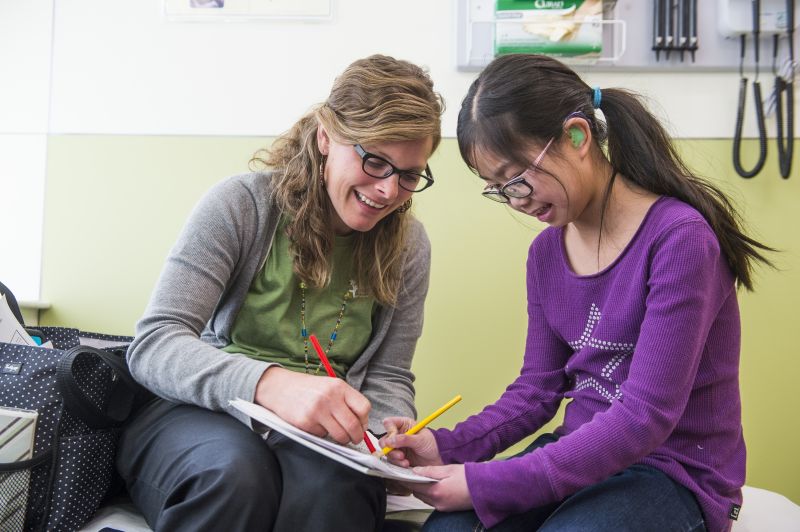Careers Working With Animals

Exploring the Diverse World of Careers Working With Animals

If you have a deep passion for animals and dream of turning that love into a fulfilling career, the world of animal-related professions offers a wide array of opportunities. From hands-on roles with direct animal care to specialized positions in research, education, and conservation, the field is vast and rewarding. In this comprehensive guide, we will delve into the diverse careers that allow you to work with animals, uncovering the paths that can lead to a meaningful and impactful professional life.
The animal-care sector is growing, driven by advancements in veterinary medicine, increasing awareness of animal welfare, and a rising demand for specialized services. Whether you're an aspiring veterinarian, a wildlife enthusiast, or simply someone with a heart for helping animals, there's a career waiting for you. In this article, we'll explore the qualifications, skills, and paths to success in this exciting field, providing you with the insights and inspiration to pursue your dream career.
The Heart of Animal Care: Veterinarians and Veterinary Technicians

At the core of animal care are veterinarians, often referred to as vets, who are the primary healthcare providers for animals. These professionals diagnose and treat a range of medical conditions in animals, from common ailments to complex surgeries. They play a crucial role in ensuring the well-being of pets, livestock, and even wildlife.
To become a veterinarian, a rigorous academic path is necessary. It typically involves earning a Doctor of Veterinary Medicine (DVM) degree, which requires a strong foundation in biology, chemistry, and other sciences. The curriculum is demanding and often includes hands-on clinical rotations to provide practical experience. After completing the degree, veterinarians must obtain a license to practice, which involves passing rigorous exams.
Veterinary technicians, often working alongside veterinarians, play a vital role in animal care. They assist in performing medical procedures, conducting laboratory tests, and providing nursing care to animals. Becoming a veterinary technician usually requires completing an accredited veterinary technology program, which can lead to an Associate's or Bachelor's degree. These professionals are a crucial part of any veterinary team, ensuring the smooth operation of animal hospitals and clinics.
Specializations in Veterinary Medicine
The field of veterinary medicine offers a wide range of specializations, allowing professionals to focus on specific areas of interest. Some common specializations include:
- Small Animal Medicine: This specialization focuses on the care of pets such as dogs, cats, and small mammals.
- Equine Medicine: Veterinarians specializing in equine medicine work with horses, treating a range of conditions unique to these majestic creatures.
- Avian and Exotic Pet Medicine: This field involves caring for birds, reptiles, and other exotic pets, requiring specialized knowledge and skills.
- Large Animal Medicine: Veterinarians in this field work with livestock, providing healthcare to cattle, pigs, sheep, and other large farm animals.
- Wildlife Medicine: A challenging and rewarding specialization, wildlife medicine involves treating injured or sick wild animals, often in rehabilitation centers or national parks.
Beyond the Clinic: Careers in Animal Training and Behavior
While veterinary medicine is a crucial aspect of animal care, there are numerous other careers that focus on training, behavior, and enrichment for animals. These professions often require a deep understanding of animal psychology and behavior, along with specialized training.
Animal Trainers and Behaviorists
Animal trainers and behaviorists play a vital role in shaping the behavior of animals, whether they are pets, working animals, or even zoo residents. These professionals use positive reinforcement techniques to teach animals a range of behaviors, from basic obedience commands to complex tricks and tasks.
Animal trainers often work with pets, assisting owners in teaching their dogs or cats basic manners and commands. They may also specialize in training service animals, such as guide dogs or therapy animals, which require advanced skills and a deep understanding of animal behavior.
Behaviorists, on the other hand, focus on understanding and modifying animal behavior. They work with owners and animals to address behavioral issues, such as aggression, anxiety, or destructive behaviors. Behaviorists often have advanced degrees in animal behavior or psychology and use evidence-based techniques to improve the well-being of animals.
Zoological Training and Enrichment
In zoos and wildlife parks, animal trainers and enrichment specialists play a critical role in ensuring the physical and mental health of animals. These professionals design and implement training programs and enrichment activities to stimulate the animals and prevent boredom. They may work with a variety of species, from big cats and primates to birds and aquatic animals.
Training in zoos often involves teaching animals to participate in their own healthcare, such as allowing veterinarians to perform medical procedures without the need for sedation. Enrichment activities, such as providing new toys, puzzles, or even structured social interactions, keep animals mentally stimulated and happy.
Conservation and Wildlife Management: Protecting Our Natural World
For those with a passion for wildlife and conservation, there are numerous careers that focus on protecting and managing our natural world. These professions often involve working outdoors, in research facilities, or in conservation organizations, and they play a crucial role in preserving biodiversity and ensuring the survival of endangered species.
Wildlife Biologists and Ecologists
Wildlife biologists and ecologists study the behavior, habitats, and interactions of animals in their natural environments. They conduct research to understand the impacts of human activities on wildlife populations and ecosystems, and they develop strategies to mitigate these impacts.
Wildlife biologists may specialize in a particular species or ecosystem, studying their behaviors, migration patterns, and reproductive strategies. Ecologists, on the other hand, focus on the relationships between organisms and their environment, including the impact of climate change and habitat loss.
Conservation Officers and Rangers
Conservation officers and rangers are the guardians of our natural resources. They work in national parks, wildlife refuges, and other protected areas, enforcing regulations and ensuring the safety and well-being of both wildlife and visitors.
Conservation officers may patrol protected areas, investigate violations of wildlife laws, and educate the public about conservation efforts. Rangers, on the other hand, often have a more hands-on role, leading tours, conducting wildlife management activities, and responding to emergencies.
Marine Conservation and Research
The ocean and its inhabitants present unique challenges and opportunities for conservation and research. Marine biologists and conservationists study marine ecosystems, from coral reefs to the open ocean, to understand the impacts of pollution, climate change, and overfishing.
Marine conservation efforts often involve protecting endangered species, such as sea turtles, dolphins, and sharks, and ensuring the sustainable use of marine resources. Researchers may also study the behavior and migration patterns of marine animals, using advanced technologies such as satellite tracking and acoustic monitoring.
Animal Welfare and Advocacy: Ensuring Ethical Treatment

Animal welfare and advocacy organizations play a crucial role in promoting the ethical treatment of animals and ensuring their well-being. These organizations work to improve the lives of animals in a variety of settings, from farms and laboratories to shelters and sanctuaries.
Animal Welfare Inspectors and Investigators
Animal welfare inspectors and investigators are responsible for enforcing animal welfare laws and regulations. They conduct inspections of animal facilities, such as farms, zoos, and research laboratories, to ensure that animals are being treated humanely and in accordance with legal standards.
Inspectors may also respond to reports of animal cruelty or neglect, investigating the allegations and taking appropriate action to protect the animals involved. They work closely with law enforcement and animal control agencies to ensure that animal welfare laws are upheld.
Animal Shelter and Rescue Workers
Animal shelters and rescue organizations are vital to the well-being of homeless and abandoned animals. These facilities provide temporary housing, medical care, and rehabilitation for animals in need, with the goal of finding them loving forever homes.
Shelter workers and rescue volunteers play a crucial role in this process. They provide hands-on care for the animals, from feeding and cleaning to administering medications and providing behavioral enrichment. They also work to match animals with suitable adopters, conducting thorough screenings to ensure a good fit.
Animal Advocacy and Policy Work
Animal advocacy organizations work to promote the rights and well-being of animals through education, public awareness campaigns, and policy reform. They advocate for stronger animal protection laws and regulations, and they often engage in political and legislative efforts to achieve these goals.
Animal advocates may work on a variety of issues, from promoting plant-based diets and reducing animal testing to ending animal cruelty and promoting responsible pet ownership. They often collaborate with researchers, policymakers, and other stakeholders to develop and implement effective strategies for change.
Education and Outreach: Inspiring a New Generation
Education and outreach professionals play a crucial role in inspiring the next generation of animal lovers and conservationists. They work to raise awareness about animal welfare, conservation, and the importance of preserving our natural world.
Zoological Educators and Interpreters
Zoological educators and interpreters work in zoos, aquariums, and wildlife parks, providing educational programs and experiences for visitors. They aim to inspire a deeper understanding and appreciation for animals and their habitats, and they often use live animal demonstrations and interactive exhibits to engage the public.
Educators may also develop curriculum materials for schools and community groups, offering educational resources and activities that align with academic standards. They play a vital role in connecting people with nature and fostering a sense of stewardship for our planet.
Wildlife Rehabilitators and Educators
Wildlife rehabilitators care for injured, orphaned, or sick wild animals with the goal of releasing them back into their natural habitats. They provide medical treatment, rehabilitation, and specialized care to ensure the animals' recovery and successful reintroduction to the wild.
Rehabilitators often work closely with wildlife educators, who provide public education and outreach programs to raise awareness about wildlife conservation and the importance of protecting natural habitats. These professionals may offer school programs, community events, and media appearances to share their knowledge and inspire others to take action.
Animal-Assisted Therapy and Education
Animal-assisted therapy and education programs use the unique bond between animals and humans to promote healing, learning, and personal growth. These programs often involve trained therapy animals, such as dogs or horses, who provide emotional support and motivation to individuals facing physical, emotional, or developmental challenges.
Animal-assisted therapy is used in a variety of settings, including hospitals, schools, and rehabilitation centers. It can help improve physical and mental health outcomes, enhance social skills, and provide a sense of comfort and companionship for those in need.
Conclusion: A World of Opportunities
The world of careers working with animals is vast and diverse, offering a wide range of opportunities for those with a passion for our furry, feathered, and finned friends. Whether you're drawn to the clinical world of veterinary medicine, the adventure of wildlife conservation, or the rewarding work of animal welfare and advocacy, there's a path that can lead to a fulfilling and impactful career.
As you explore these careers, it's important to consider your own interests, skills, and values. Each profession requires a unique combination of knowledge, experience, and dedication, but all share a common goal: to improve the lives of animals and ensure their well-being. With a deep commitment to learning and a passion for making a difference, you can find your place in this exciting and rewarding field.
What are the key skills needed for a career working with animals?
+
Working with animals requires a range of skills, including patience, empathy, and excellent communication abilities. It’s also crucial to have a strong foundation in animal behavior, anatomy, and physiology. Depending on the specific career path, additional skills such as critical thinking, problem-solving, and leadership may be necessary.
How can I gain experience working with animals before pursuing a career?
+
Volunteering is an excellent way to gain hands-on experience working with animals. Many animal shelters, wildlife rehabilitation centers, and even veterinary clinics welcome volunteers. You can also consider internships or part-time jobs in animal-related fields to build your skills and network.
What are some of the challenges of working with animals?
+
Working with animals can be emotionally demanding, as you may encounter animals in distress or face the challenge of saying goodbye. It’s important to have a strong support system and the ability to cope with difficult situations. Additionally, some careers may involve working irregular hours or in outdoor environments, which can present their own unique challenges.
Are there any online resources or courses to help me learn more about careers working with animals?
+
Yes, there are numerous online resources and courses available to help you explore careers working with animals. Websites like the American Veterinary Medical Association (AVMA) and the Association of Zoos and Aquariums (AZA) offer valuable information and resources. Additionally, many universities and online learning platforms offer courses and certifications in animal care and welfare.



